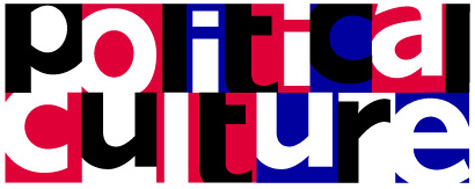
Anyone who reads this column regularly knows that, like many folks who are politics-obsessed, I am prone to a certain rhetorical schizophrenia. Frequently I have castigated conservatives, and far less frequently I have turned my ire against progressives, who escalate beyond all reasonableness their criticisms of and vitriol toward those with whom they disagree. Yet I am hardly innocent of engaging in such harsh language myself; on more than one occasion I’ve referred to someone’s words or actions as ”un-American” or ”despicable” or “wingnut” or some other such epithet. It’s an intellectual flaw, and a character flaw as well; it’s also, regrettably, the way our politics currently function most effectively. When I think of the snowballing imprudence of our public discourse, and my own place within it, I’m reminded of a comment my friend made at a concert a quarter-century ago, as the audience pummeled a perfectly good opening act with verbal abuse: ”If these people get any more violent, I’m gonna have to hit somebody.”
 It’s fitting, as well as ironic, that I quote my friend’s bon mot in the wake of Saturday’s senseless events in Tucson. After all, I’ve quoted it in this space before. About a year and a half ago — as part of the nation recoiled from, and another part celebrated, the incivility of the 2009 ”town hall” meetings over health care reform — I wrote a column titled ”Inglourious Democrats?” in which I used a viewing of Quentin Tarantino’s then-current film as a springboard for a discussion of that incivility. I bemoaned the inability of liberals to offer effective, gut-level responses to conservatives’ overheated rhetoric, and I imagined some elaborate revenge fantasies to pay back the birthers, the inventors of ”Death Panels,” and others who had taken their opposition way too far.
It’s fitting, as well as ironic, that I quote my friend’s bon mot in the wake of Saturday’s senseless events in Tucson. After all, I’ve quoted it in this space before. About a year and a half ago — as part of the nation recoiled from, and another part celebrated, the incivility of the 2009 ”town hall” meetings over health care reform — I wrote a column titled ”Inglourious Democrats?” in which I used a viewing of Quentin Tarantino’s then-current film as a springboard for a discussion of that incivility. I bemoaned the inability of liberals to offer effective, gut-level responses to conservatives’ overheated rhetoric, and I imagined some elaborate revenge fantasies to pay back the birthers, the inventors of ”Death Panels,” and others who had taken their opposition way too far.
I was proud of that column. It was imaginative, and it was funny — mostly because imagining Democrats using Tarantino-esque methods to put the kibosh on conservative tantrums was so patently ridiculous. (I mean, these are people who didn’t — and still don’t — have the spine to defend the sensibility of end-of-life counseling against a fallacy like ”Death Panels.”)
Yes, the notion of taking revenge against various conservatives was unthinkable … except, perhaps, to the one real nutjob who might have come across my words while randomly surfing the Internet. In the wake of Saturday’s events, however, it’s clear that such a caveat constitutes a risk that’s no longer worth taking.
Over the last two days there’s been plenty of debate over whether it makes sense to lay part of the blame for a deranged man’s actions upon individual or collective instances of vitriolic rhetoric — upon Sarah Palin’s ”crosshairs” poster, or Sharron Angle’s ”Second-Amendment remedies” statement, or a piece like ”Inglourious Democrats?” for that matter. But the most compelling argument I’ve heard was a simple metaphor offered by pundit Josh Marshall: The most likely victims of a flu epidemic are the very young, the very old and the infirm. But that doesn’t mean the flu is acceptable as long as the most vulnerable are the only ones affected, or that we shouldn’t try to stop it until it starts wreaking havoc on the hale and the hearty.
 It’s going to turn out that Jared Loughner has spent years on a downward spiral, psychologically, and it’s going to turn out that he had some sort of bizarre personal vendetta against Representative Giffords. Of course it’s going to turn out that way. But nothing we’ll learn about Loughner’s peculiar troubles (and they’re sure to be peculiar), and nothing we’ll hear from the predictably spooked classmates and authority figures who have dealt with him over the years, will absolve those of us who participate in the nation’s political discourse from our responsibility for creating this toxic tone. Through our demonization of those who disagree with us, we have made targets of public servants and anyone else who chooses to become involved in politics, as staff members, as advocates, or merely as involved constituents.
It’s going to turn out that Jared Loughner has spent years on a downward spiral, psychologically, and it’s going to turn out that he had some sort of bizarre personal vendetta against Representative Giffords. Of course it’s going to turn out that way. But nothing we’ll learn about Loughner’s peculiar troubles (and they’re sure to be peculiar), and nothing we’ll hear from the predictably spooked classmates and authority figures who have dealt with him over the years, will absolve those of us who participate in the nation’s political discourse from our responsibility for creating this toxic tone. Through our demonization of those who disagree with us, we have made targets of public servants and anyone else who chooses to become involved in politics, as staff members, as advocates, or merely as involved constituents.
It’s particularly (but not exclusively) at difficult times like these, with the economy still suffering and political passions running rampant, that we must recognize the impact our words and actions may have upon the least stable among us, not just the most. And Saturday’s shooting should offer a sobering epiphany to all of us who contribute to the political discourse: that the climate we have created is a destructive one, not just intellectually but physically. We need to accept that crosshairs and Hitler references, and cockamamie revenge fantasies, aren’t just metaphors — not to the folks at the margins, the unbalanced or dangerous people who are most likely to act upon their own non-metaphorical interpretations of such imagery.
Thankfully, as one of the few and the proud with ”editor” privileges at Popdose, I have the ability to erase my own misguided content, if not to undo the mistake of posting it to the site in the first place. So don’t go looking for ”Inglourious Democrats?” in the archives. You won’t find it. I recognize now that my words of September 2009 were potentially just as damaging — to the extent that anyone even read them — as the words and deeds of the people I excoriated in the column. So I have taken it upon myself to remove those words from the public record, to the extent that I can. I don’t think it’s necessary to scrub every piece I’ve ever written of such ill-tempered remarks, but there was something I could do about the single most egregious column I’ve left floating around the internet, and so I did.
I know I’m not the first person to offer such a mea culpa this weekend, much less the most eloquent, and I certainly don’t claim that erasing a largely unread column makes me any kind of hero or martyr to civility. However, I do hope that anyone else who has written or said words as regrettable as mine is currently feeling the same sort of remorse over them. And I’m not just talking about professional or armchair pundits, or politicians for that matter; I’m not just talking about the usual suspects whose names have been bandied about this weekend, with good reason.
 I’m also talking about those readers whose hate-filled snipes litter the comments sections at many news and opinion websites, most obviously The Washington Post‘s. (Personally, I think the Post should rein in the unfettered opportunities it provides for readers to call each other names and toss about idiotic epithets like ”libs” and ”repugs.”) And I’m even talking about some of the comments that have been posted in this space, occasionally, over the last few years.
I’m also talking about those readers whose hate-filled snipes litter the comments sections at many news and opinion websites, most obviously The Washington Post‘s. (Personally, I think the Post should rein in the unfettered opportunities it provides for readers to call each other names and toss about idiotic epithets like ”libs” and ”repugs.”) And I’m even talking about some of the comments that have been posted in this space, occasionally, over the last few years.
If one little glimmer of good has come out of Saturday’s events, it is that we have gotten to know quite a bit about Gabrielle Giffords and federal Judge John M. Roll. She’s an effective legislator whose moderation is a terrific match for her district’s divided political sentiments; he was a highly respected, conservative judge; both have been exemplary public servants. Though high-profile members of different political parties, they considered themselves friends and colleagues — to the point that Roll found it appropriate to head over to the local Safeway on Saturday morning ”just to say hi.”
Are these the sort of people we mean when we sit in front of our computers and, often anonymously, label every politician ”hopelessly corrupt,” or lament that the only recourse for Washington may be to ”blow up the place”? Yes, the dysfunction in D.C. is frustrating, even maddening; and yes, the system of electing our representatives is broken and encourages both corruption and rabid polarization. But to tar every public servant with the same broad brush, and to assume our problems are intractable because of inherent corruption and ill intentions, is to deny the possibility of people like Giffords and Roll — and, most certainly, to discourage other potential leaders from following in their footsteps. And in the wake of Saturday’s tragedy, which happened to take the life of a 9-year-old student council president, we don’t need to offer any more discouragement to the next generation of potential leaders.
 In addition to some moderation of the indiscriminate scorn being heaped upon government officials, there are a couple other things I’d like to see come out of the current soul-searching. For one, I’d like to see House Republicans give up their plan to vote on a repeal of the health-care reform law. If they want to re-litigate healthcare during the coming term, fine! They can debate specific elements of the law that should be improved or jettisoned, and they can force negotiations with the Democratic-controlled Senate in their hopes of slowing down funding for the law’s implementation. But the repeal vote that was scheduled for next week is nothing but divisive, hyper-partisan showboating, with no hope whatsoever of advancing the debate — but plenty of potential to inspire another round of vandalism and, quite obviously now, worse crimes among the unhinged elements of the populace.
In addition to some moderation of the indiscriminate scorn being heaped upon government officials, there are a couple other things I’d like to see come out of the current soul-searching. For one, I’d like to see House Republicans give up their plan to vote on a repeal of the health-care reform law. If they want to re-litigate healthcare during the coming term, fine! They can debate specific elements of the law that should be improved or jettisoned, and they can force negotiations with the Democratic-controlled Senate in their hopes of slowing down funding for the law’s implementation. But the repeal vote that was scheduled for next week is nothing but divisive, hyper-partisan showboating, with no hope whatsoever of advancing the debate — but plenty of potential to inspire another round of vandalism and, quite obviously now, worse crimes among the unhinged elements of the populace.
And one more thing: I’d like — but hardly expect — conservative leaders and followers to examine why they find violent rhetoric and imagery so appealing. Why do crosshairs on a poster or phrases like ”Don’t retreat — RELOAD!” stir the conservative spirit? Why did protesters last spring have to exhort Congress not simply to defeat healthcare legislation, but to ”kill the bill”? Tea Partiers have been tripping over one another this weekend to insist that such stuff is a bipartisan problem, but the equivalency simply isn’t there — not when we can all still remember those red-faced shouters disrespecting their legislators at the 2009 town halls, or the signs at Tea Party rallies that read, ”We left our guns at home — this time.”
Because guess what? I don’t care whether he was one of your guys or not: This time, somebody brought a gun.




Comments